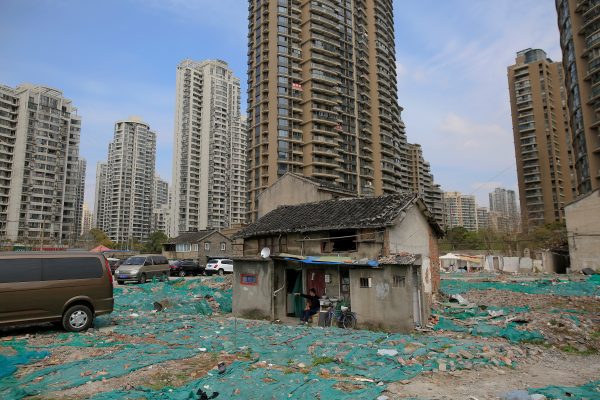In early September the Communist Party’s Central Leading Group for Overall Reform, headed by President Xi Jinping, approved new property rights protection guidelines. The guidelines include 10 specific measures that underscore the party’s interest in improving legal safeguards for the owners of tangible and intangible property. That includes commercial real estate, trademarks and intellectual property rights.
Every market economy is built on a foundation of property rights. Indeed, the modern world owes much of its prosperity to the tenets of property rights, along with the principles of freedom of contract and fair competition.
China has been pursuing better property rights protection since the late 1970s, chalking up some landmark achievements along the way. In 2004, for example, the constitution was amended to enshrine private property rights. And three years later, the first Property Law was promulgated.
Yet property rights are still often violated. Rules have sometimes failed to protect the assets of private entrepreneurs. In extreme cases, local government officials on asset-grabbing adventures have had private entrepreneurs kidnapped, attacked or even killed.
A few years ago, in the western Chinese city of Chongqing — at the time under since-disgraced regional Party Secretary Bo Xilai — false criminal charges were levelled against many private entrepreneurs before their assets were seized in the name of a ‘crackdown on crime’.
Concerns about property rights violations help explain why an increasing number of private business owners are moving their assets overseas, throwing a spanner into China’s economic transformation.
When private assets, equity holdings and intellectual property rights are not protected, entrepreneurs can lose confidence in the business environment. A lack of confidence can discourage entrepreneurs from saving money and investing in innovation. Company executives may thus be more inclined to spend their money quickly rather than investing in research and development or planning for the future.
Government-led growth has been powering China for decades. Now there’s an urgent need for a more efficient growth model that relies on innovation, new technology, industrial upgrading, service sector development and information systems. China’s transformation has been complicated and difficult. It cannot now be pushed forward without fostering entrepreneurship.
The party’s new guidelines have given that spirit of entrepreneurship a shot in the arm. The guidelines include a prediction that ‘property rights protection will foster entrepreneurship and innovation’. Policymakers have thus confirmed the importance of strengthening property ownership as a foundation for a stronger economy.
The guidelines also address some major concerns shared by private entrepreneurs. They point to a more tolerant attitude toward private businesses that have, in years gone by, built their wealth in ways that might have been illegal at the time. This new tolerance has eased anxiety among business owners who don’t want to be penalised for committing ‘original sins’ during the early days of China’s reform movement.
The guidelines also spell out legal procedures for criminal cases involving business assets. This means that accusations against a company or its executives are less likely to interrupt normal business operations. These procedures also provide a system for clearly dividing an entrepreneur’s personal assets and a company’s assets. There have been several cases in the past where an entrepreneur’s individual assets were seized after false allegations were levelled against a company.
Under the guidelines, some controversial legal cases from the past involving property rights decisions are to be re-examined and unsettled disputes put to rest. Of course, it will be difficult to reverse and make amends for a previous conviction if, upon re-examination, an injustice is revealed. But righting wrongs is a must-do. Justice must be done and victims along with their families must be properly compensated.
There have been a number of cases where the verdicts have been re-examined and rectified in recent years, but information about these was kept under wraps. It is an encouraging sign that justice prevails. But the prevention of any publicity regarding these cases renders justice incomplete. Overturning a verdict is not enough. Making the results public should be part of efforts to compensate victims and hold guilty parties responsible.
Meanwhile, there are many cases of property rights violations that have been dragging on for years in some courts. These must be resolved without further delay.
Making amends for past property rights violations would go a long way towards improving the credibility of the nation’s judicial system and promoting judicial reform. A fundamental reason for improving property rights protection is that doing so will advance the rule of law. Another is that it will pave the way for properly supervising those holding power.
China’s policymakers have obviously taken a stand on property rights while thoughtfully arranging to better protect private property owners. Their latest guidelines will lead to reforms that change government functions while improving administrative efficiency. It’s an enormously challenging task, but one worth every effort.
Hu Shuli is Chief Editor at Caixin Media.
This article appeared in the most recent edition of the East Asia Forum Quarterly, ‘Managing China’.

